Serving 150 students in grades Kindergarten-6, Mays Elementary School ranks in the top 5% of all schools in Indiana for overall test scores (math proficiency is top 5%, and reading proficiency is top 10%).
The percentage of students achieving proficiency in math was 90-94% (which was higher than the Indiana state average of 64%). The percentage of students achieving proficiency in reading/language arts was 85-89% (which was higher than the Indiana state average of 68%).
The student:teacher ratio of 13:1 was lower than the Indiana state level of 15:1.
Minority enrollment was 4% of the student body (majority Black), which was lower than the Indiana state average of 37% (majority Hispanic).
School Overview
Grades Offered
Grades Kindergarten-6
Total Students
150 students
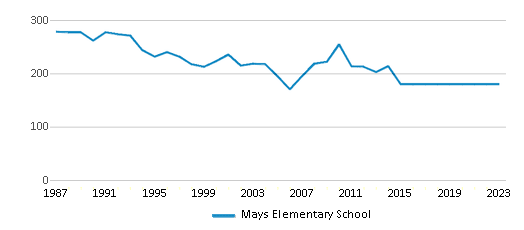
Total Classroom Teachers
12 teachers
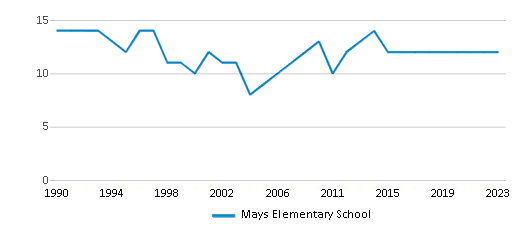
Students by Grade
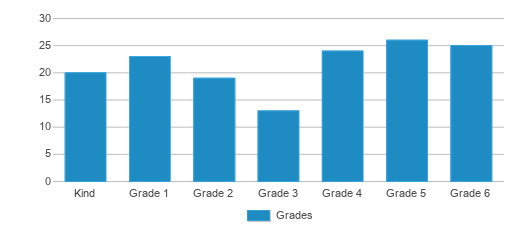
School Rankings
Math Test Scores (% Proficient)
(14-15)90-94%
64%
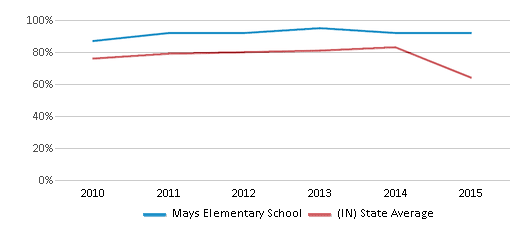
Reading/Language Arts Test Scores (% Proficient)
(14-15)85-89%
68%
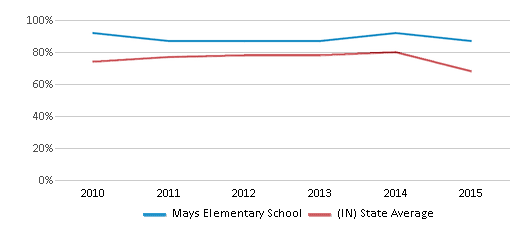
Student : Teacher Ratio
13:1
15:1
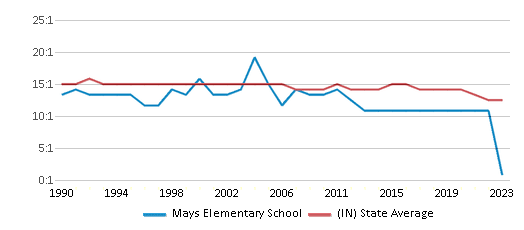
American Indian
n/a
n/a
Asian
n/a
3%
Hispanic
n/a
15%
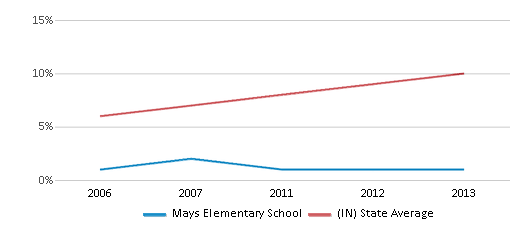
Black
1%
13%
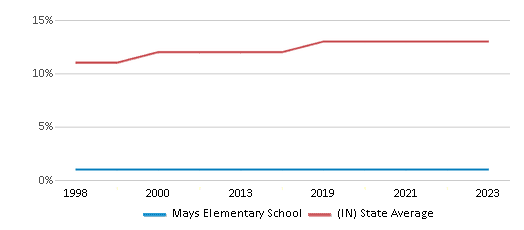
White
96%
63%
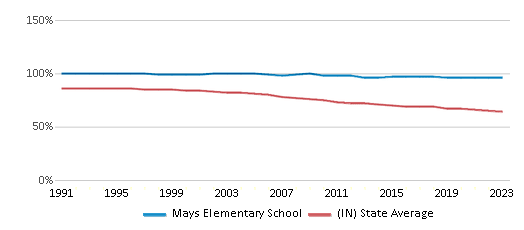
Hawaiian
n/a
n/a
Two or more races
3%
6%
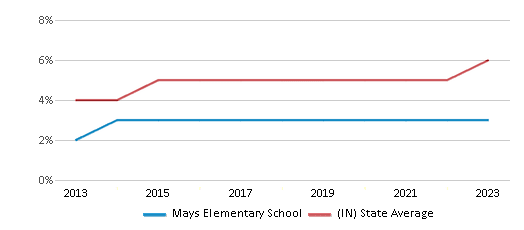
All Ethnic Groups
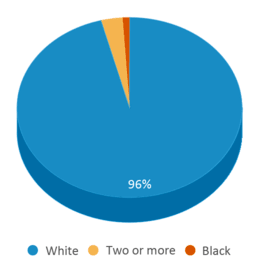
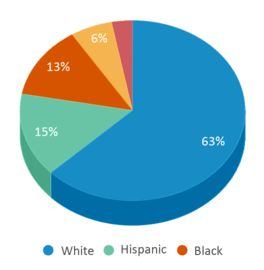
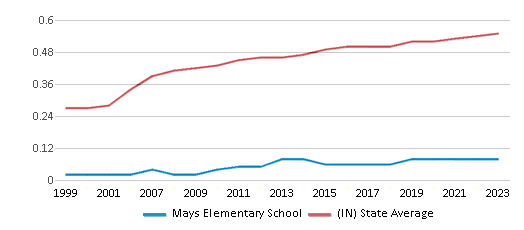
Eligible for Free Lunch
46%
43%
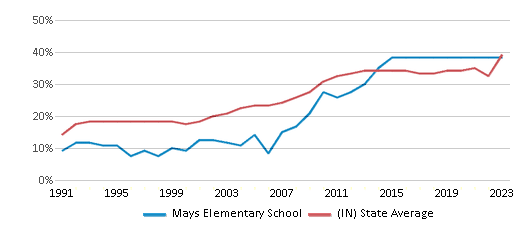
Eligible for Reduced Lunch
5%
6%
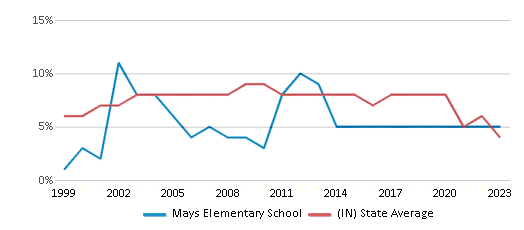
School Statewide Testing
School District Name
Source: National Center for Education Statistics (NCES), IN Dept. of Education
Frequently Asked Questions
What percent of students have achieved state testing proficiency in math and reading?
90-94% of students have achieved math proficiency (compared to the 64% IN state average), while 85-89% of students have achieved reading proficiency (compared to the 68% IN state average).
How many students attend Mays Elementary School?
150 students attend Mays Elementary School.
What is the racial composition of the student body?
96% of Mays Elementary School students are White, 3% of students are Two or more races, and 1% of students are Black.
What is the student:teacher ratio of Mays Elementary School?
Mays Elementary School has a student ration of 13:1, which is lower than the Indiana state average of 15:1.
What grades does Mays Elementary School offer ?
Mays Elementary School offers enrollment in grades Kindergarten-6
What school district is Mays Elementary School part of?
Mays Elementary School is part of Rush County Schools School District.
Recent Articles

What Is A Charter School?
Explore the world of charter schools in this comprehensive guide. Learn about their history, how they operate, and the pros and cons of this educational innovation. Discover key facts about charter schools, including admission policies, demographics, and funding, as well as what to look for when considering a charter school for your child.

10 Reasons Why High School Sports Benefit Students
Discover the 10 compelling reasons why high school sports are beneficial for students. This comprehensive article explores how athletics enhance academic performance, foster personal growth, and develop crucial life skills. From improved fitness and time management to leadership development and community representation, learn why participating in high school sports can be a game-changer for students' overall success and well-being.

February 05, 2025
Understanding the U.S. Department of Education: Structure, Impact, and EvolutionWe explore how the Department of Education shapes American education, from its cabinet-level leadership to its impact on millions of students, written for general audiences seeking clarity on this vital institution.





